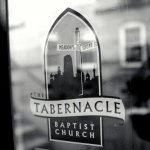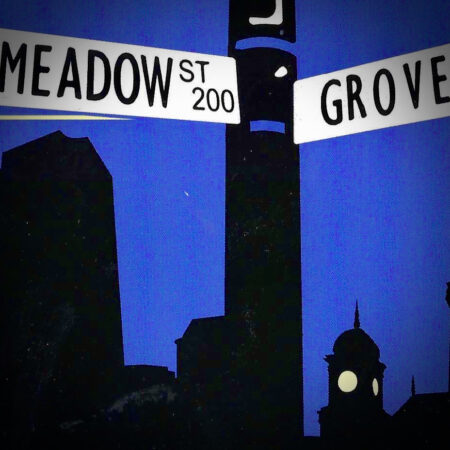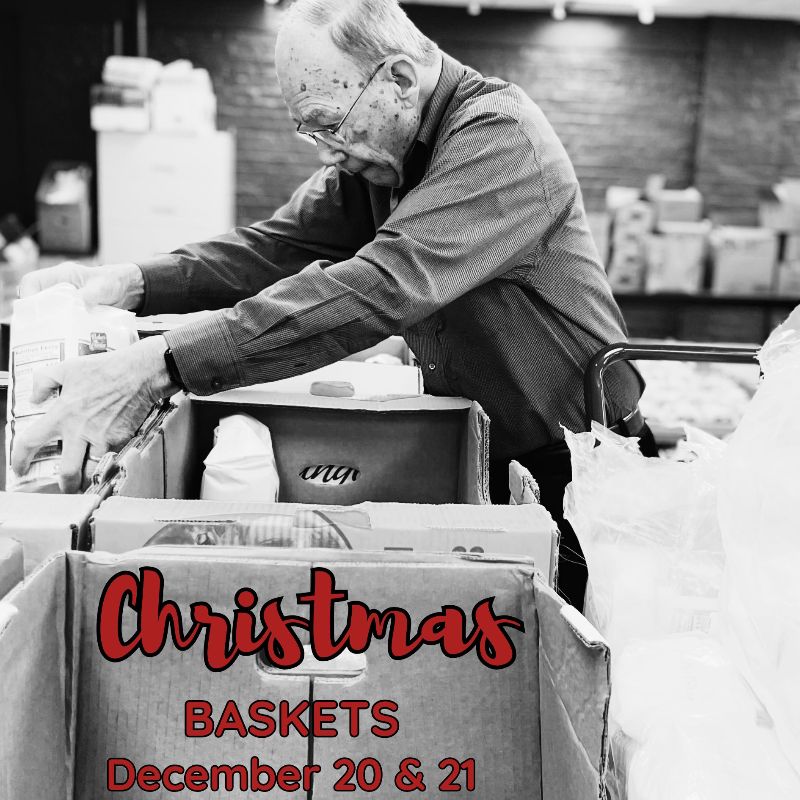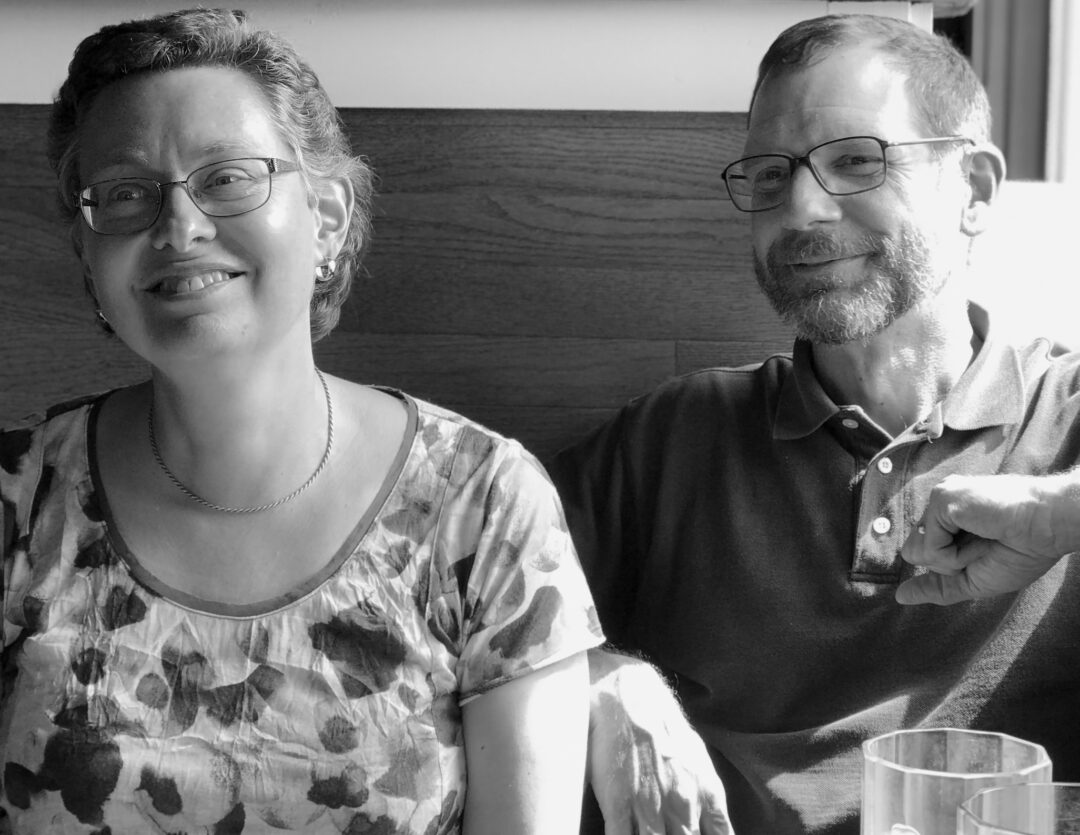Blog
Christmas Basket Ministry
This Saturday is our annual Christmas Basket Community Ministry, and you’re invited to come be part of this meaningful day! While the tradition of providing holiday meals continues, this year will look a little different as we live out our values of hospitality and dignity in new ways.
Instead of packing baskets, we’re offering neighbors the opportunity to choose the ingredients that best suit their needs—just as we normally do in the food pantry. Choice matters because it honors our neighbors’ preferences and experiences.
There are so many ways to be involved, and not every job requires heavy lifting! We need help with set-up, guiding neighbors through their selections, carrying groceries, and—just as importantly—offering a warm smile, a listening ear, and a spirit of welcome.
Come be part of this special day of connection, care, and joy. Together, we’ll share the love of Christ in the way we welcome and serve one another.
How Can I Participate? Sign Up Here
1. Volunteer to help prepare baskets and other Community Ministry food on Friday, December 20.
- The heavy lifting team will meet at 9:30am at Aldi (927 Meyer St). Strong muscles and trucks needed!
- Join the set up team at 10am at Tabernacle. There’s a job for every ability level!
- Stick around to help with some additional projects: Epiphany stars, organizing, etc
2. Join us Saturday, December 21 as we welcome our neighbors for breakfast, choice pantry and Christmas Basket distribution. 7:30am to 1pm
3. Commit to praying for our neighbors receiving baskets. Join me in praying for the invitation that will be extended around each table. Pray that the host and participants will recognize belonging. Pray that our neighbors will see Christ as they engage with those around their table. Pray for the lonely that they will be comforted. And pray that doors will be opened through relationships.
Help Us Share Holiday Meals with Our Community!
On December 21, Tabernacle’s Community Ministry will provide holiday meal ingredients to over 250 families, and we need muscle power to make it happen!
We’re looking for strong volunteers to help during these times:
• Friday, December 20, at 9:30 AM @Aldi: Load bags of apples, oranges, potatoes, and shelf-stable items into trucks at Aldi and transport and unload at Tabernacle (2 hours max).
• Saturday, December 21, at 7:30 AM @Aldi: Load turkeys, chickens, hams, milk, and eggs in to trucks @Aldi (1 hour max).
• Saturday, December 21, 7:30 AM – 1:00 PM @Tabernacle: Help to carry groceries to cars throughout the morning. Feel free to join us anytime!
Your strength and time will make a huge difference as we share the joy of the season with our neighbors. If you’re able to help, we’d love to have you!
Please reach out to April@tbcrichmond.org to let the team know you are coming!
Summer Mission Opportunity in Hungary
Doug and Lea Coppage are looking for people to help with next summer’s Baseball Camp in Vác, Hungary! The camp will be Monday, June 30, through Saturday, July 5; the trip would be (approximately) Friday, June 27, until Tuesday, July 8.
These are the kind of people we’re looking for:
1. 8-12 year olds who play baseball/softball,
2. their parents
3. any age ball players
4. chaperones
5. people interested in helping in any way.
Please ask God whether you might take part in this. If you do, contact pastor@tbcrichmond.org
Date Details:
Friday, June 27 at the latest: FLY to Hungary
Saturday, June 28: ARRIVE in Hungary
Sunday, June 29: REST, PREP for camp
Monday-Saturday, June 30 – July 5, 2025: CAMP
Sunday, July 6: Go to church in Budapest AND/OR Budapest tour.
Monday, July 7: Budapest tour OR fly back to the States.
Tuesday, July 8: fly back to the States.
Lifting up Cochrane Family…
We lift up the Cochrane Family and all those who loved and shared life with Jimmy. In this time of sorrow, let us find meaningful ways to be the heart and hands of Christ, bringing comfort and compassion to those who are grieving. As we honor his life, let’s also express our gratitude for the many ways Jimmy touched our lives and the life he continues to share with God. Let’s commit to pray, for comfort and thanksgiving!
James “Jimmy” H. Cochrane, Jr departed Newport, the Hokie Nation and his SCV camp unexpectedly on October 24. He was born in Richmond, spent much of his childhood and adult years in Rockville. Jim graduated from the Collegiate Schools, Virginia Tech (Architecture) and the University of Richmond (Transportation Management). He was the ultimate Tech fan, rarely missing a Hokie football or basketball game. When he was not wearing orange or maroon, he might be found in Civil War battalion attire or a Scottish kilt. He was pre-deceased by his parents J. Harwood Cochrane and Louise “Lulu” Blanks Cochrane, and his sister Suzanne Austell Martin. He is survived by his sister Judith Cochrane Hines, seven nieces and nephews, twelve great nieces and nephews and fiance’ Dale Hawthorne Harper. Jim worked at Overnite Transportation, Highway Express, then owned and operated a TourTime America motorcoach franchise.
He served on the boards of the Richmond Ski Club, the Museum & White House of the Confederacy, Huguenot Springs Cemetery and the American Frontier Culture Museum. Jim was fiercely proud of his Cochrane Scottish heritage and his brotherhood in the Kappa Alpha Order. He was well versed in American and military history. He was a long time member and Commander of the J.E.B. Stuart camp of the Sons of Confederate Veterans, coordinating and commanding numerous reenactments throughout Virginia and the south. He dedicated his life to civil war history and the battlefields of the Shenandoah Valley will forever be a part of his legacy. He retired to Wintergreen and subsequently Newport to be near his beloved Blacksburg.
He was larger than life and will be greatly missed by his family and friends in the Richmond Ski Club, the Knibbs Battery cannon battalion, Kappa Alpha and at Virginia Tech. There will be a memorial service at 11am Wednesday 11/6/24 at Woody Funeral Home at 1771 North Parham Rd Richmond, Va 23229. A private interment will follow. A Celebration of Life will follow a cannon salute at Huguenot Springs Cemetery on a later date.
See You at the Corner of Emmaus and Grove
Learning to See: Join us this Thursday, Oct. 24 at 6-8 p.m.
Just days earlier, they had witnessed Jesus’ brutal death in Jerusalem, leaving them overwhelmed with grief and uncertainty. Two of His followers, one named Cleopas and the other unnamed, now walk the road to Emmaus, their minds swirling with questions. How could this have happened? What if everything they believed was wrong? What next? Along the way, they find themselves hosting a stranger, and as they walk, they speak repeatedly of the burden of failure. As the sun begins to set, stillness—the great amplifier of anxiety—settles in. Broken hearts break bread together, and then it happens—the stillness is broken with the miraculous. Eyes are opened, the presence of the risen Christ is made known, and the presumed hosts find themselves invited yet again into a future wide open.
The Emmaus Road is long, and while you won’t see it on any map, it intersects at every corner in the city we call home. Just after the pandemic, Alcoholics Anonymous began meeting weekly in the “Blue Room” of the little church at the corner of Emmaus and Grove. There, each week, just after the sun goes down, the brokenhearted gather together and inevitably find themselves less alone than they thought they were. Stories of brokenness, despair, healing, and transformation are shared in that space. It’s on the road to Emmaus the future is resurrected, one broken heart at a time, one step at a time.
This Thursday, I’d like to invite you to the corner of Emmaus and Grove. We’ll gather together with one of the leaders of the AA meeting that takes place every Wednesday in the Blue Room. We’ll hear stories, and perhaps some of us will even feel called to share some of our own. Perhaps, in the sharing of stories and also in the stillness—the great amplifiers of God’s presence—we’ll all catch a glimpse of a resurrected future? Perhaps we, each and every one of us as guests, might leave that place more resolved to keep walking, one step at a time, toward that future together?
I hope to see you there.
Yours in Christ,
Rev. Sterling W. Severns
Pastor
Details for Thursday, October 24, 2024:
- Time: 6:00 PM – 8:00 PM
- Location: Blue Room, Tabernacle Church
- Dinner: Pizza and salad provided
- RSVP: Please e-mail communications@tbcrichmond.org
Reflection Guide: Romans 6 and the Pattern of Dying to Self
Scripture: Romans 6:1-11, Sermon by Rev. Sterling W. Severns
Reflection Questions
1. The Continuous Nature of Spiritual Growth
The sermon emphasized that spiritual growth is not a one-time event but a continuous journey. Baptism represents the ongoing pattern of dying to our false selves and rising with Christ, over and over. Paul calls us into a lifelong relationship with God that demands daily surrender to grace.
Quotes:
- “Grace isn’t just for our past sins, but for the ongoing process of transformation in our lives.” — From the sermon
- “Spiritual growth is a journey, not a moment. It’s an ongoing invitation to trust in grace.” — From the sermon
Reflection Questions:
- Where in your life do you feel called to surrender more fully to ongoing spiritual growth?
- How might viewing your faith as a continuous journey change the way you approach daily challenges?
2. Baptism: A Continuous Journey, Not a One-Time Event
Baptism symbolizes more than a one-time moment of salvation. It’s an invitation to participate repeatedly in the death and resurrection of Christ. Paul teaches that we don’t leave behind sin in a single act, but we live in a daily pattern of surrender and renewal.
Quotes:
- “Baptism isn’t a ritual of finality. It’s the starting point of an ongoing journey with God’s grace.” — From the sermon
Reflection Questions:
- How does your baptism (or your understanding of baptism) inform your current spiritual practices?
- In what ways can you more intentionally participate in the “death and resurrection” pattern of spiritual growth in your everyday life?
3. Sin as Disconnection from God
Sin is not just a list of wrong behaviors, but an expression of our disconnection from God. It’s a failure to trust in God’s love and provision. Paul invites us to go deeper than surface-level morality and look at the spiritual root of sin—our distance from God.
Quotes:
- “Sin is not about being bad; it is about being disconnected from God, and grace is the connection that heals and restores us.” — Greg Boyle
Reflection Questions:
- How do you typically understand sin in your own life? Do you tend to focus more on behaviors or the deeper issues of trust and disconnection from God?
- What steps can you take to reconnect with God in areas where you feel distant or mistrustful?
4. Idolatry and Fear-Based Living
The root of sin is a failure to trust in God’s sufficiency, leading us to live out of fear. We create idols—control, success, or security—when we feel uncertain. Living in fear keeps us from relying on God’s provision and invites us to hold onto false securities.
Quotes:
- “The root of sin is our failure to trust in God’s sufficiency. Instead of trusting God’s provision, we rely ultimately on ourselves.” — Mark Biddle, Missing the Mark
Reflection Questions:
- What idols (e.g., control, success, security) do you find yourself clinging to in times of uncertainty?
- How can you shift from a fear-based way of living to a life more rooted in trust and surrender to God’s provision?
5. The Tug of Grace: A Moment-to-Moment Decision
We are continually pulled by fear, the root of all sin. The tug of grace is what gets our attention, but it’s not enough to keep us from being pulled under. It’s the invitation to decide: will we allow fear to drown our true selves, or will we let go of the rope, die to self, and let God’s grace drown our false selves?
Quotes:
- “The tug of grace is God’s invitation. It’s not about resisting fear through our strength but about letting go and trusting in grace.” — From the sermon
Reflection Questions:
- Can you identify moments in your life where fear has pulled you away from trust in God? How did the tug of grace invite you to respond?
- What would it look like to let go of the rope and fully surrender to grace in a specific area of your life?
6. Dying to Self and Living in Christ
Paul teaches that true spiritual life comes through repeated death to self. We are called to continually surrender our false selves—our fears, pride, and need for control—and trust in God’s resurrection power. This ongoing death and resurrection is what allows us to live fully in Christ.
Quotes:
- “We are called to ‘just keep drowning.’ It is in dying to our false selves that we can truly live.” — From the sermon
Reflection Questions:
- What aspects of your false self (e.g., pride, control, fear) are you being called to surrender in this season of life?
- How have you experienced spiritual resurrection after moments of dying to self? What new life emerged from those experiences?
Quotes for Further Reflection
- “Grace isn’t just for our past sins, but for the ongoing process of transformation in our lives.” — From the sermon
- “Sin is not about being bad; it is about being disconnected from God, and grace is the connection that heals and restores us.” — Greg Boyle
- “We are called to ‘just keep drowning.’ It is in dying to our false selves that we can truly live.” — From the sermon
- “The root of sin is our failure to trust in God’s sufficiency. Instead of trusting God’s provision, we rely ultimately on ourselves.” — Mark Biddle, Missing the Mark
- “When we live out of fear, we are essentially choosing self-reliance over grace, and in the end, that will always pull us under.” — From the sermon

Through Many Dangers, Toils, and Snares
We were the only two in line, strangers waiting for the pharmacy to reopen. It took her little or no time to begin to openly share her story with me. As she spoke about her journey through illness and healing, her hands told the story as much as her words.
She gently touched her head, right where the tumor had been, explaining how peace first entered her life—something she grasped intellectually after the surgery, as she processed what she had been through.
Then, she placed her hand over her heart, describing how that peace deepened, becoming something she could feel more fully.
But it was when she placed both hands on her stomach that her voice softened, and she said, “But now, I know it here.” This was peace she carried in her gut, a knowing that had grown through suffering, endurance, and the long journey now behind her. And she couldn’t keep it to herself—the peace had become too real, too profound, not to share.
Her testimony brought to life the very words of Paul in Romans 5. He speaks of suffering producing endurance, endurance shaping character, and character leading to a hope that does not disappoint. There are no platitudes here—no quick fix for pain. Paul is sharing the journey that he, and so many others, have walked: through suffering, into endurance, and into a hope that transforms us from the inside out. This is not about earning anything—it’s about receiving the grace of God, who walks with us and delivers us through every trial. God is with us every step of the way.
As we sang together at the end of last Sunday’s sermon,
“Through many dangers, toils and snares,
I have already come; ’Tis grace hath brought me safe thus far,
And grace will lead me home.”
The suffering we endure becomes the very path through which God leads us into hope. This journey isn’t about mere survival—it’s about discovering a peace so deep, a hope so life-altering, that we are never the same.
I invite you to take some time this week to reflect on these powerful truths. If you feel called to explore further, our reflection guide is available on the website as a helpful tool to guide your prayers and thoughts. It offers an opportunity to dive deeper into how God may be transforming your experiences of suffering into endurance and hope.
Thanks be to God for the gift of grace……leading us home.
Yours in Christ,
Rev. Sterling W. Severns
Important Building & Grounds Information
*Atrium Roofing Project Update
Due to safety concerns voiced by the scaffolding company and our desire to avoid risk of interference with our duty as a voting precinct for the upcoming elections, the atrium roofing project is delayed. We do not have a definite start date currently. We will coordinate with Chandler Construction to also avoid any overlap with the scheduled elevator project timeline of November 7-21, 2024. Other details remain the same:
- The elevator will be available during this project.Overhead protection will be in place.
- When work begins, we anticipate a three-week project timeline
- The atrium stairwell will be blocked off from use. Users of the facility will be asked to use another entrance if possible.
- Signage will be present to help direct users to the elevator or to another entrance.
- There will be a dumpster at the Meadow Street/alley corner location, protected by plywood and with signage.This will prevent interruption of alley use.
*Elevator Control Panel Replacement Project
Please mark your calendars now—this project requires that our elevator is out of service for two weeks. This work is scheduled for November 7-November 21, waiting until after the Presidential election to be sure that there is no interference for that commitment.
The B&G Committee, pastoral staff, and Administrative Board are making every effort to communicate this information to all building users. We are researching options for how we can best serve our building community during this project time frame. More details will be provided as we get near the start of the work. Please keep reading the TAB for updates.
We sincerely appreciate your understanding as we manage these two important improvement projects.Please direct any questions you may have regarding these building initiatives, or any other suggestions regarding our facilities, to Donna Soyars at soundsidedfs@gmail.com.






